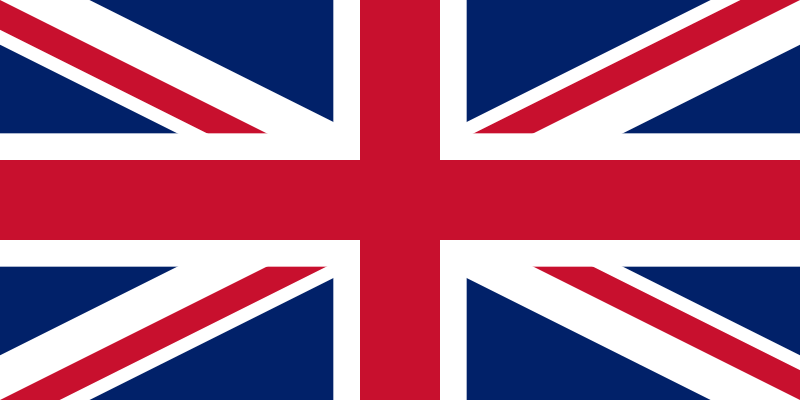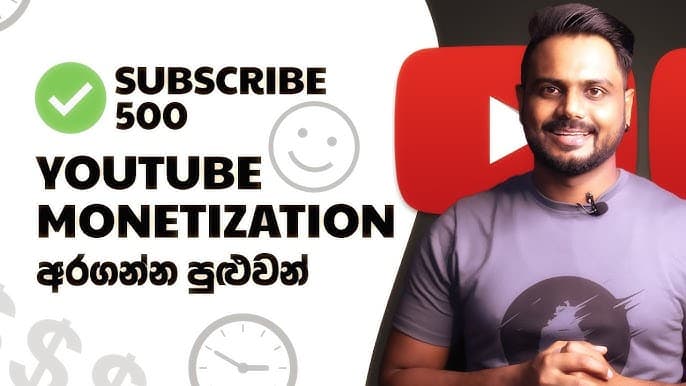
Navigating YouTube Monetization for UK Creators
summary
YouTube Monetization in the United Kingdom refers to the process by which content creators in the UK earn revenue from their videos on the platform, governed by a combination of YouTube's internal policies, UK advertising regulations, and data protection laws. To monetize content, creators must meet eligibility criteria set by the YouTube Partner Program (YPP), including minimum thresholds for subscribers, watch hours, or Shorts views, and adhere to YouTube's Advertiser-Friendly Content Guidelines[1][2]. These guidelines ensure content aligns with advertiser expectations and community standards, maintaining the platform's ecosystem integrity[1][3].
UK-based creators must also comply with external regulations enforced by bodies such as the Advertising Standards Authority (ASA) and Ofcom. The ASA mandates transparency in advertising, requiring disclosures like "#ad" for sponsored content, while Ofcom oversees online safety, ensuring platforms protect users from harmful material[4][5][6][7]. Additionally, the UK General Data Protection Regulation (GDPR) and the Data Protection Act 2018 impose strict rules on data collection and privacy, particularly concerning children, with violations potentially leading to significant fines[8][9].
YouTube offers multiple monetization methods, including ad revenue, channel memberships, Super Chat, and merchandise sales, enabling creators to diversify their income streams[10][11]. However, challenges such as demonetization, fluctuating ad revenue, and compliance with evolving regulations have sparked controversies, particularly around transparency and fairness in YouTube's policies[12][13]. Despite these challenges, YouTube has significantly impacted the UK's creative economy, contributing over '1.4 billion to the GDP and supporting thousands of jobs[14].
As the platform continues to adapt to regulatory changes and technological advancements, the future of YouTube monetization in the UK is poised to evolve, offering both opportunities and challenges for creators navigating this dynamic landscape[15][16].
Overview
YouTube monetization in the United Kingdom is governed by a combination of platform-specific policies, advertising regulations, and broader data protection laws. To monetize content on YouTube, creators must adhere to the platform's eligibility requirements, which include meeting specific thresholds for subscribers and watch hours, as well as complying with YouTube's Advertiser-Friendly Content Guidelines[1][2]. These guidelines ensure that content aligns with advertiser expectations and community standards, thereby maintaining the integrity of the platform's ecosystem[1][3].
In addition to YouTube's internal policies, UK-based creators must also navigate regulations set by external bodies such as the Advertising Standards Authority (ASA) and Ofcom. The ASA ensures that advertisements, including those on YouTube, comply with the UK's advertising codes, which mandate transparency and fairness[4][5]. For instance, the ASA requires that influencer marketing content be clearly labeled with disclosures such as "ad" or "#ad" to ensure viewers understand the promotional nature of the content[6][7]. Failure to comply with these rules can result in penalties, including referral to Ofcom, which has the authority to enforce legal actions[8][9].
Ofcom, as the UK's regulator for online safety, also plays a role in overseeing video-sharing platforms (VSPs), including YouTube. Since November 2020, UK-established VSPs must comply with rules aimed at protecting users from harmful content, which indirectly impacts monetization practices[10]. Furthermore, the UK General Data Protection Regulation (GDPR) and the Data Protection Act 2018 impose additional responsibilities on creators and platforms to safeguard user data, which can influence monetization strategies[11][12].
Eligibility Criteria
To monetize content on YouTube in the United Kingdom, creators must meet specific eligibility criteria set by the YouTube Partner Program (YPP). These requirements ensure that creators produce high-quality, engaging, and compliant content before they can earn revenue from their videos[13][14].
Application Process
Once a channel meets the eligibility criteria, creators can apply for the YPP through YouTube Studio on a desktop or mobile device. After submitting the application, creators will see an "In progress" status, indicating that YouTube is reviewing their channel[15][16]. If approved, creators gain access to monetization features such as ad revenue, channel memberships, and more[17].
Minimum Requirements
As of 2024, the primary eligibility thresholds for joining the YPP include:
-
Subscribers: A minimum of 500 subscribers[18].
-
Watch Hours: At least 3,000 public watch hours in the last 12 months for long-form videos[18].
-
Shorts Views: Alternatively, 10 million valid public Shorts views in the last 90 days[18].
These requirements were lowered in June 2023 to allow more creators to participate in the program[18][19]. Previously, creators needed 1,000 subscribers and 4,000 watch hours or 10 million Shorts views to qualify[20].
Valid Watch Hours and Views
Not all watch hours or views count toward the eligibility thresholds. For long-form videos, watch hours gained through private videos, unlisted videos, or videos removed for policy violations do not count[15]. Similarly, for Shorts, only valid public views are considered, excluding views from deleted or non-compliant content[15].
Compliance with Policies
Creators must adhere to YouTube's monetization policies and community guidelines to qualify for the YPP. This includes producing advertiser-friendly content and avoiding violations such as harmful behavior, misinformation, or content that violates copyright laws[17][1]. Channels that fail to comply with these guidelines may have monetization disabled or be removed from the YPP entirely[21].
Maintaining Eligibility
To remain eligible for monetization, creators must stay active on the platform. YouTube may turn off monetization for channels that have not uploaded a video or posted to the Community tab for six months or more[15][16]. Additionally, creators must continue to comply with YouTube's policies and guidelines to avoid suspension or termination from the YPP[21].
By meeting these criteria and maintaining compliance, UK-based creators can unlock the potential to earn revenue through YouTube's monetization features[14][22].
Monetization Methods
YouTube offers a variety of monetization methods for creators in the United Kingdom, enabling them to generate income through their content. These methods include ad revenue, channel memberships, Super Chat, merchandise sales, and more. Each method has its own eligibility requirements and revenue-sharing models, providing creators with multiple avenues to earn money.
Channel Memberships
Channel memberships allow viewers to support creators through monthly payments in exchange for exclusive perks such as badges, emojis, and members-only content. This feature is available to creators who meet specific eligibility criteria, including having at least 1,000 subscribers and being part of the YPP[23]. Channel memberships provide a steady income stream and help creators build a loyal community.
YouTube Premium Revenue
Creators can also earn revenue from YouTube Premium subscribers who watch their content. A portion of the subscription fees paid by YouTube Premium users is distributed to creators based on the watch time of their videos. This provides an additional income stream for creators, complementing ad revenue and other monetization methods[24].
Ad Revenue
Ad revenue is the most common monetization method on YouTube, where creators earn money from ads displayed on their videos. YouTube shares 55% of the total ad revenue generated by a video with the content creator, while retaining 45% for itself[24]. Factors such as the type of ad, viewer location, and content length can significantly influence earnings. For instance, long-form content often generates higher revenue per view compared to short-form videos, even with fewer views[25][26]. To enable ad revenue, creators must join the YouTube Partner Program (YPP) and comply with YouTube's Community Guidelines, Terms of Service, and monetization policies[14][20].
Super Chat and Super Stickers
Super Chat and Super Stickers are features that enable viewers to pay for highlighted messages or stickers during live streams and premieres. These features are particularly popular among creators who engage with their audience in real-time. Earnings from Super Chat and Super Stickers are shared between YouTube and the creator, with the latter receiving the majority of the revenue[23].
Merchandise and Shopping Features
Creators can also monetize their channels by selling their own merchandise or promoting products from other brands through YouTube's shopping features. This method allows creators to diversify their income and leverage their brand to generate additional revenue. To access these features, creators must meet specific eligibility requirements, including being part of the YPP[23].
YouTube Shorts Monetization
YouTube Shorts, the platform's short-form video feature, has its own monetization model. Creators earn money based on a shared pool of ad revenue from the Shorts Feed, with 45% of this pool allocated to creators based on their share of total Shorts views[27]. While Shorts often attract more views compared to long-form content, the revenue per view is typically lower[26]. To participate in Shorts monetization, creators must review and accept the Shorts Monetization Module in YouTube Studio[28].
Compliance and Regulation
In the UK, advertising on YouTube is regulated by the Advertising Standards Authority (ASA) and OFCOM. Creators must ensure that any sponsored content or advertisements are clearly disclosed, using labels such as "ad" or "#ad" to maintain transparency and comply with advertising rules[6][7]. Failure to adhere to these regulations can result in penalties or the suspension of monetization features.
By leveraging these monetization methods, UK-based creators can build sustainable income streams while producing engaging and diverse content for their audiences.
Policies and Regulations
YouTube monetization in the United Kingdom is subject to a range of policies and regulations designed to ensure compliance with advertising standards, data protection laws, and online safety measures. These rules are enforced by various regulatory bodies, including the Advertising Standards Authority (ASA), Ofcom, and the Information Commissioner's Office (ICO).
Advertising Standards and Compliance
The Advertising Standards Authority (ASA) is the UK's independent regulator of advertising across all media, including YouTube. The ASA ensures that advertisements adhere to the UK Advertising Codes, which are written by the Committees of Advertising Practice (CAP). These rules require that ads are clearly labeled, particularly in influencer marketing, where disclosures such as "ad" or "#ad" are mandatory to avoid misleading viewers[7][6]. Failure to comply with these rules can result in sanctions, including referral to Ofcom for further action, especially in cases involving video-on-demand (VOD) services[9][29].
Ofcom, the UK's communications regulator, has additional powers to regulate video-sharing platforms (VSPs) under legislation introduced in 2020. This includes ensuring that platforms like YouTube take appropriate measures to protect children from harmful content and all users from illegal material[30][31]. Ofcom also oversees the implementation of the Online Safety Act, which aims to make online services safer for users[31].
Data Protection and Privacy
YouTube's data collection practices, particularly concerning children, have come under scrutiny in the UK. The platform has faced allegations of violating the UK Data Protection Act 2018 and the EU's General Data Protection Regulation (GDPR), which continue to apply in the UK post-Brexit until 2021[32][33]. These laws require platforms to obtain explicit consent for data collection and to implement robust measures to protect users' privacy. Violations can result in substantial fines imposed by the ICO, the UK's data protection authority[34][35].
A notable case involves a multi-billion-pound lawsuit alleging that YouTube collected the viewing data of up to five million British children under the age of 13 without proper consent, constituting a major breach of privacy laws[32][33]. Such violations highlight the importance of adhering to GDPR principles, which aim to give users more control over their personal data[35].
YouTube Partner Program and Monetization Policies
The YouTube Partner Program (YPP) allows creators to monetize their content through ad revenue sharing and other earning opportunities. However, participation in the program requires compliance with YouTube's policies, which are periodically updated to reflect changes in the platform's ecosystem or legal requirements[21][36]. For example, creators must adhere to YouTube's quality principles for kids and family content, and violations of these guidelines can result in demonetization or termination of the channel[21].
In 2023, YouTube introduced new eligibility criteria for the YPP, including expanded monetization opportunities for Shorts and modularized terms to simplify future updates[36]. Creators must review and accept these terms by specified deadlines to continue monetizing their content[36]. Additionally, YouTube has strengthened its requirements for monetization to prevent spammers and bad actors from exploiting the platform[3].
Enforcement and Penalties
Non-compliance with advertising, data protection, or monetization policies can lead to significant consequences. The ASA and Ofcom have the authority to impose sanctions, including fines and referrals to higher regulatory bodies[9][31]. Similarly, GDPR violations can result in administrative fines levied by the ICO, which can be substantial depending on the severity of the breach[34][35]. In extreme cases, YouTube may suspend or terminate channels that repeatedly violate its policies, effectively cutting off their revenue streams[21].
These regulations underscore the importance of adhering to UK laws and YouTube's policies to maintain monetization eligibility and avoid legal repercussions.
Challenges and Controversies
Demonetization Policies
YouTube's demonetization policies have been a significant source of controversy for content creators in the UK. Demonetization occurs when a video is deemed ineligible for monetization under YouTube's Advertiser-Friendly Content Guidelines, leading to the removal of ads and loss of revenue for creators[37][38]. This can happen for various reasons, including the inclusion of sensitive or controversial topics, even if the content does not explicitly violate YouTube's Community Guidelines[39]. Critics argue that these policies often prioritize advertiser interests over creator autonomy, potentially stifling important conversations and creative expression[40]. Additionally, YouTube has increasingly focused on off-platform behavior, demonetizing creators whose actions outside the platform are deemed harmful, further complicating the landscape for UK-based YouTubers[39].
Regulatory Oversight and Compliance
The UK government has introduced stricter regulations for video-sharing platforms, including YouTube, to protect users from harmful and illegal content. Since 1 November 2020, Ofcom has been empowered to regulate UK-based platforms, ensuring compliance with child protection and content moderation standards[30]. Non-compliant platforms face hefty fines of up to '18 million or 10% of their global revenue, adding pressure on YouTube to enforce its policies rigorously[41]. Furthermore, the Advertising Standards Authority (ASA) mandates clear labeling of advertisements, including influencer marketing, to ensure transparency for viewers[6][7]. These regulations, while aimed at safeguarding users, have increased the compliance burden for creators and platforms alike.
Taxation and Financial Challenges
UK-based YouTubers must navigate complex tax obligations under the UK GDPR and Data Protection Act 2018, which govern how personal data, including earnings, is handled[11][42]. Creators are required to report their income accurately and pay taxes on ad revenue, sponsorships, and other monetization streams[43]. Failure to comply with these regulations can result in significant penalties, particularly in cases involving children's privacy violations under GDPR[32]. Additionally, fluctuations in ad revenue, influenced by factors such as viewer location and ad type, can make financial planning challenging for creators[44].
Impact on Content Diversity
YouTube's monetization policies and regulatory pressures have raised concerns about their impact on content diversity. By setting higher eligibility thresholds for the YouTube Partner Program (YPP), the platform aims to prevent spammers and bad actors from exploiting the system[1]. However, these measures can also exclude smaller or emerging creators, limiting their ability to earn revenue and grow their channels[1]. Critics argue that this creates a barrier to entry, potentially reducing the variety of content available to UK audiences[40].
Reputation and Trust Issues
The enforcement of demonetization and regulatory policies has occasionally led to public backlash, damaging the reputation of both YouTube and affected creators. High-profile cases, such as the demonetization or banning of popular creators like David Dobrik and Dan Bongino, have sparked debates about fairness and transparency in YouTube's decision-making processes[39]. Such controversies can erode trust in the platform, making it harder for creators to build sustainable careers and for viewers to engage with content confidently[40].
Impact on Content Creators
YouTube monetization has significantly influenced content creators in the United Kingdom, offering both opportunities and challenges. The platform's unique revenue-sharing model, which allows creators to earn directly from ad revenue, has been instrumental in fostering a vibrant creator community and encouraging the production of diverse and engaging content[45][46]. For UK-based creators, this income stream has proven to be a game-changer, providing financial stability and enabling investments in higher-quality content[13].
Financial Opportunities and Challenges
YouTube's monetization program has opened up multiple income streams for creators, including ad revenue, channel memberships, Super Chat, and merchandise sales[14]. The platform shares 55% of the total ad revenue generated by a video with the content creator, making ad revenue a cornerstone of earnings[24]. However, the financial contrast between short-form and long-form content is stark. While YouTube Shorts often attract significantly more views, they generate substantially less revenue per view compared to long-form videos[26][25]. For instance, a short video with 10.4 million views earned approximately $2,000, whereas a long-form video with just 68,000 views garnered $1,000[25].
Eligibility and Compliance
To access these monetization opportunities, UK creators must meet specific eligibility criteria, including compliance with YouTube's Community Guidelines, Terms of Service, and monetization policies[17][14]. The introduction of the YouTube Partner Program (YPP) has further streamlined the process, allowing creators to unlock additional earning opportunities by accepting various contract modules[36]. However, stricter eligibility requirements have been implemented in recent years to prevent spammers and bad actors from exploiting the platform[3].
Diversification and Adaptation
Diversifying income streams has become essential for creators to maximize their earnings. Beyond ad revenue, creators can explore options such as channel memberships, Super Chat, and YouTube Premium revenue[24][14]. Additionally, staying informed about policy changes and optimizing content for search are critical strategies for sustaining long-term success[13]. The platform's evolving monetization policies, such as the introduction of ad revenue sharing for YouTube Shorts, have also required creators to adapt their strategies[36][27].
Economic and Creative Impact
YouTube's creative ecosystem has had a profound economic impact in the UK, contributing over '1.4 billion to the country's GDP[47]. The platform has empowered 80% of creative entrepreneurs to create content and earn money, further solidifying its role as a pillar of digital content creation[47]. However, challenges such as fluctuating ad revenue and the need for compliance with advertising regulations, enforced by the UK's Advertising Standards Authority (ASA), have added complexity to the monetization process[7].
Future Trends and Developments
The landscape of YouTube monetization in the United Kingdom is continually evolving, driven by regulatory changes, technological advancements, and shifts in user behavior. One significant development is the UK Government's introduction of new legislation in autumn 2020, granting Ofcom powers to regulate UK-based video-sharing platforms (VSPs). These powers, which came into force on 1 November 2020, aim to ensure that VSPs implement appropriate measures to protect users, particularly children, from harmful and illegal content[30]. This regulatory framework is expected to influence how platforms like YouTube manage content and monetization policies in the future.
YouTube has also been proactive in adapting its monetization strategies to support creators. In 2023, the platform announced significant changes to its YouTube Partner Programme (YPP), lowering eligibility criteria and introducing new monetization features such as paid chat, tipping, channel memberships, and shopping features[48]. These changes are designed to provide greater opportunities for small creators to generate revenue, reflecting YouTube's commitment to fostering a diverse and inclusive creator ecosystem. Additionally, the platform has introduced a revenue-sharing model for YouTube Shorts, where creators earn a share of ad revenue based on their Shorts' viewership[27]. This model is expected to benefit creators who previously relied on the Shorts Fund, potentially increasing their earnings.
The rise of alternative monetization strategies is another trend shaping the future of YouTube monetization. As creators seek to diversify their income streams, methods such as merchandise sales, channel memberships, and fan funding are gaining traction[49][17]. These strategies not only provide financial stability but also reduce reliance on ad revenue, which can be unpredictable due to changes in YouTube's policies and algorithms[50]. For UK-based creators, these alternative income streams can be transformative, enabling them to invest in higher-quality content and grow their channels sustainably[13].
Regulatory compliance remains a critical factor for UK creators. The Advertising Standards Authority (ASA) and Ofcom play pivotal roles in regulating advertising on video-sharing platforms, including YouTube. The ASA's research emphasizes the importance of clear disclosure in influencer marketing, requiring ads to be labelled with '#ad' or similar indicators[6]. Failure to comply with these regulations can result in penalties, including referral to Ofcom for further action[9]. As influencer marketing continues to grow, adherence to these guidelines will be essential for maintaining trust and transparency with audiences.
Data protection and privacy regulations, such as the UK GDPR and Data Protection Act 2018, also impact YouTube monetization. Creators must ensure compliance with these laws to avoid penalties, including administrative fines imposed by the Information Commissioner's Office (ICO)[34][51]. The GDPR has already influenced online platforms, with studies showing a 12.5% drop in user engagement and monetization for some services[12]. As data privacy concerns grow, creators and platforms alike will need to prioritize compliance to sustain their operations.
Finally, YouTube's economic impact in the UK underscores its significance as a driver of growth and employment. In 2021, the platform contributed over '1.4 billion to the UK's GDP and supported more than 40,000 full-time equivalent jobs[52]. As the platform continues to innovate and expand its monetization options, its role in the UK's digital economy is expected to grow, providing new opportunities for creators and businesses alike.


